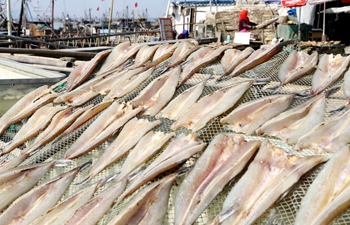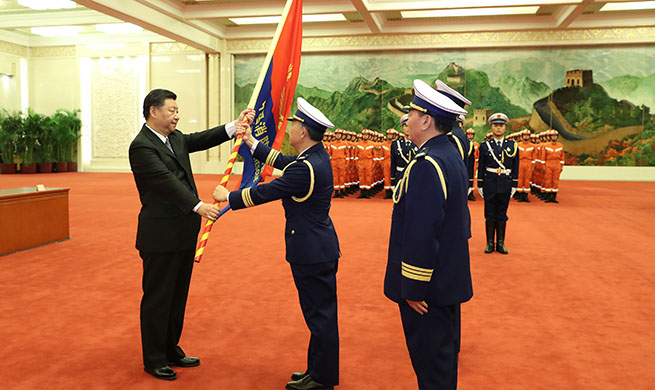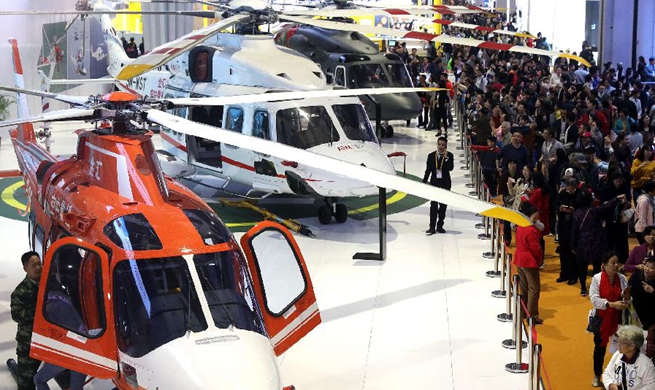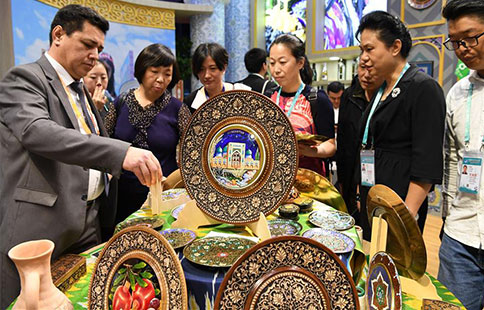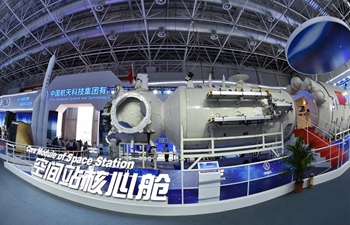by Yu Qianliang, Zheng Shibo
JAKARTA, Nov. 11 (Xinhua) -- The Association of Southeast Asian Nations (ASEAN) has scored major achievements in economic development and integration since the beginning of this year, Secretary-General of ASEAN Lim Jock Hoi said.
On goods, virtually all of intra-ASEAN tariffs (98.6 percent) have been eliminated this year while ASEAN intensifies efforts to advance its trade facilitation work, Lim Jock Hoi said in a written interview with Xinhua ahead of the 33rd summit of ASEAN and related meetings, to be held on Nov. 11-15 in Singapore.
"Since Jan. 1, 2018, the ASEAN Single Window (ASW) has been in live operation in five ASEAN member states, namely Indonesia, Malaysia, Singapore, Thailand and Vietnam. Preferential tariff duty can now be granted through the exchange of electronic data (e-ATIGA Form D) and received electronically through the ASW gateway. Efforts to expand the coverage of the ASW to include all ASEAN member states and to add other documents are underway," said Lim.
The ASEAN-wide Self-Certification Scheme will soon be in operation following the signing of the first protocol to amend the ASEAN Trade in Goods Agreement (ATIGA) in August 2018, said Lim, adding the scheme will facilitate the utilization of the ATIGA by allowing exporters to issue declarations of origin, thereby decreasing transaction time and costs.
On services, Lim said, the protocol to implement the 10th and final package of commitments was signed in August.
To support mobility, schedules of commitments under the ASEAN Agreement on Movement of Natural Persons are being reviewed, while the implementation of various mutual recognition agreements for professional services as well as the ASEAN Qualifications Reference Framework is underway, the secretary-general said.
"Significant progress has been made on initiatives related to electronic commerce and the digital economy. The ASEAN Agreement on Electronic Commerce was already endorsed and is expected to be signed by the ASEAN economic ministers (AEM) at the November summit. The ASEAN Digital Integration Framework has also been adopted by the AEM for endorsement by the AEC (ASEAN Economic Community) Council in November."
Furthermore, the ASEAN Secretariat has undertaken an assessment of ASEAN readiness for the Fourth Industrial Revolution (4IR) which highlights the value of leveraging regional platforms to build collective readiness for Industry 4.0 and the need for closer cross-pillar coordination due to the expansive implications of the 4IR, Lim said.
To facilitate good regulations and regulatory practices, the AEM had adopted the ASEAN Good Regulatory Practice (GRP) Core Principles, he said.
Moving forward, Lim said, the key priorities are to fully implement the AEC Blueprint 2025, deepen market integration, strengthen cross-pillar and cross-sectoral collaboration, and address new emerging issues requiring the region's attention such as 4IR, he added.
ASEAN was established in August 1967 by the five founding member states, namely Indonesia, Malaysia, the Philippines, Singapore and Thailand. The group later expanded to include Brunei, Cambodia, Laos, Myanmar and Vietnam.
The ASEAN Declaration states that the aims and purposes of the association are to accelerate economic growth, social progress and cultural development in the region, to promote regional peace and stability through abiding respect for justice and the rule of law in the relationship among countries in the region and adherence to the principles of the United Nations Charters.





